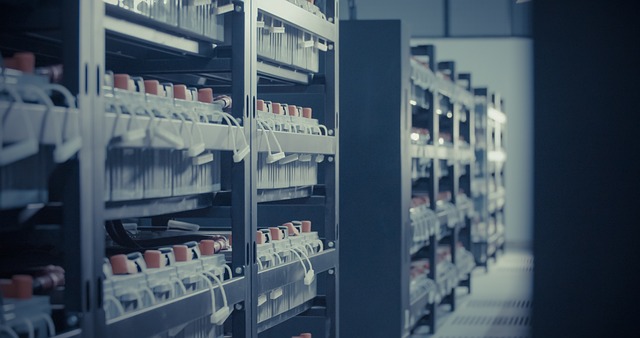Lead-Acid Battery Consulting, Sales & Installation
We consult, sell, install and maintain Lead-Acid Batteries in Nigeria & Africa
Lead-Acid Batteries Sales & Installation In Nigeria & Africa
Global Locations
Phone: +234 808 0888 162
Email: [email protected]
Address: 17/21, Akinsanya Street, Ojodu Berger, Lagos.
Hours: Mon-Fri: 9am – 4pm
Email: [email protected]
Address: 17/21, Akinsanya Street, Ojodu Berger, Lagos.
Hours: Mon-Fri: 9am – 4pm
Download Brochure
Our Service To You
With Ground Zero Africa Industries' renewable energy solutions, you can successfully switch to clean and sustainable energy with our comprehensive Lead-Acid Battery energy solutions.
Our experienced team specializes in the sales, installation, and maintenance of top-quality Lead-Acid Batteries, so you can enjoy lower energy costs, reduced carbon footprints, and experience reliable power supply.
Embrace the future of energy with our trusted Lead-Acid Battery products and services which can be deployed anywhere in Nigeria or Africa.
Our experienced team specializes in the sales, installation, and maintenance of top-quality Lead-Acid Batteries, so you can enjoy lower energy costs, reduced carbon footprints, and experience reliable power supply.
Embrace the future of energy with our trusted Lead-Acid Battery products and services which can be deployed anywhere in Nigeria or Africa.

What is A Lead-Acid Battery?
A lead-acid battery is a type of rechargeable battery that uses a chemical reaction between lead and sulfuric acid to store and release electrical energy. It is one of the oldest and most common types of batteries used in various applications, including automotive, marine, and backup power systems.
The basic construction of a lead-acid battery consists of a series of lead plates immersed in a sulfuric acid electrolyte solution. The battery has two types of plates: positive plates, which are made of lead dioxide (PbO2), and negative plates, which are made of sponge lead (Pb). These plates are alternately arranged and separated by insulating materials.
During the charging process, electrical energy is supplied to the battery, causing a chemical reaction that converts the lead plates into lead sulfate (PbSO4) and releases electrons. This process is reversible, allowing the battery to be discharged and recharged multiple times.
Lead-acid batteries are known for their robustness, high surge current capabilities, and low cost compared to other types of batteries. They can deliver a large amount of current in a short period, making them suitable for applications that require high starting power, such as starting an engine in a vehicle.
However, lead-acid batteries have some limitations. They are relatively heavy and have a lower energy density compared to other battery chemistries. They also require regular maintenance, including checking and replenishing the electrolyte levels, to ensure optimal performance and prevent sulfation, a condition that can reduce battery capacity over time.
Lead-acid batteries are widely used in vehicles, including cars, trucks, motorcycles, and boats, as well as in uninterruptible power supply (UPS) systems, renewable energy storage systems, and various industrial applications. Despite the emergence of newer battery technologies, lead-acid batteries continue to be favored for their reliability, affordability, and well-established infrastructure for recycling and disposal.
A lead-acid battery is a type of rechargeable battery that uses a chemical reaction between lead and sulfuric acid to store and release electrical energy. It is one of the oldest and most common types of batteries used in various applications, including automotive, marine, and backup power systems.
The basic construction of a lead-acid battery consists of a series of lead plates immersed in a sulfuric acid electrolyte solution. The battery has two types of plates: positive plates, which are made of lead dioxide (PbO2), and negative plates, which are made of sponge lead (Pb). These plates are alternately arranged and separated by insulating materials.
During the charging process, electrical energy is supplied to the battery, causing a chemical reaction that converts the lead plates into lead sulfate (PbSO4) and releases electrons. This process is reversible, allowing the battery to be discharged and recharged multiple times.
Lead-acid batteries are known for their robustness, high surge current capabilities, and low cost compared to other types of batteries. They can deliver a large amount of current in a short period, making them suitable for applications that require high starting power, such as starting an engine in a vehicle.
However, lead-acid batteries have some limitations. They are relatively heavy and have a lower energy density compared to other battery chemistries. They also require regular maintenance, including checking and replenishing the electrolyte levels, to ensure optimal performance and prevent sulfation, a condition that can reduce battery capacity over time.
Lead-acid batteries are widely used in vehicles, including cars, trucks, motorcycles, and boats, as well as in uninterruptible power supply (UPS) systems, renewable energy storage systems, and various industrial applications. Despite the emergence of newer battery technologies, lead-acid batteries continue to be favored for their reliability, affordability, and well-established infrastructure for recycling and disposal.
Key Questions & Answers
Some of the key questions and answers you may need are below:
Our trade process spreads across CIF and FOB depending on the buyer's preference.
Here's what they entail:
1). Ex Works:
Ex Works means that the seller shall deliver the goods as soon as they are made available to the buyer at the seller's premises or other designated premises (e.g. factory, plant, warehouse, etc.). The seller shall not be obligated to load the goods onto a collecting vehicle or to clear the products for export.
2). Cost Insurance and Freight (CIF): Here, the seller will handle everything from loading the vessel, paying for insurance, and sending the product to wherever the buyer wants it delivered.
3). Freight On Board (FOB): Here, the seller pays for the transportation of the goods to the port of shipment, plus loading costs, while the buyer pays the cost of marine freight transport, insurance, unloading, and transportation from the originating port to the final destination.
Here's what they entail:
1). Ex Works:
Ex Works means that the seller shall deliver the goods as soon as they are made available to the buyer at the seller's premises or other designated premises (e.g. factory, plant, warehouse, etc.). The seller shall not be obligated to load the goods onto a collecting vehicle or to clear the products for export.
2). Cost Insurance and Freight (CIF): Here, the seller will handle everything from loading the vessel, paying for insurance, and sending the product to wherever the buyer wants it delivered.
3). Freight On Board (FOB): Here, the seller pays for the transportation of the goods to the port of shipment, plus loading costs, while the buyer pays the cost of marine freight transport, insurance, unloading, and transportation from the originating port to the final destination.

We Are Ready To Take Your Order
We ensure that the most critical industrial raw materials ranging from ithium ores like spodumene, lepidolite and amblygonite to the supply of tantalite, silica sand and much more commodities required for manufacturing in the renewable energy space, are delivered on time, every time. We also ensure that we deliver the most efficient and powerful renewable energy solutions to our clients for their vast array of projects
Quick Contact
If you have any questions or need help, please contact our team.
17/21, Akinsanya Street, Ojodu Berger, Lagos, Nigeria
Become A Partner
©2023 Ground Zero Africa Industries, All Rights Reserved.



